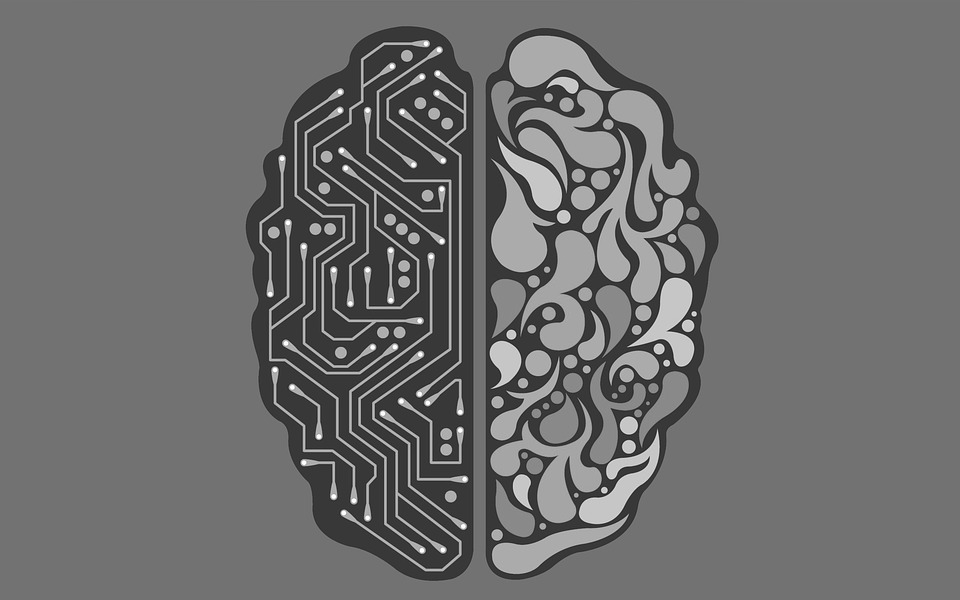Because the cost of living is increasing as well as healthcare costs, the expense is declining. It’s not essential for health care that is affordable for it. If we can come up with an answer that meets the requirements of a large population for a reasonable cost, we could reduce mortality and boost the response to actions.
Artificial Intelligence (AI) can be employed as a corrective technology that could provide an effective solution to the problem. Artificial Intelligence can assist in many ways and is crucial in filling the gap in health services. Artificial Intelligence provides a solution that acts as the first layer of support that helps the poor to receive health advice.
With smartphones and low-cost data that improves connectivity and accessibility; the masses could be helped by creating social change as well as affordable health healthcare. The obstacles to access and affordability can be eliminated by introducing Artificial Intelligence (AI). Computers can be more effective and accessible through understanding the complexities of concepts and making them more accessible to comprehend and use by humans.
Healthcare is now emerging as one of the largest beneficiaries of the advancements in artificial intelligence globally, however; there is an immense reliance on investing. If the use of Artificial Intelligence (AI) in healthcare expands then the scientific community can adapt it to provide research results and services. The precision medicine results and the quality of services will improve by predicting diseases on time.
AI Technology Impact on our Health Care System
Health care preventive
An artificial intelligence-based application is already available, allowing individuals to continue to improve their lifestyles to improve their overall health. AI-based applications, which can be found on your phone, or in the cloud, will save and record data and offer unique visualizations of health information that appeal to people and are simple to follow.
It has been perceived as an era of change and worries about health by people who wear wearable devices. These devices operate on an algorithm for cognitive coaching, which provides crucial advice on health, sleep, nutrition, and fitness, etc.
Quickly detects disease and prevention
With the aid of artificial intelligence, we can receive timely warnings about illnesses – for example, unusual breathing rhythms, variations to the pattern of blood pressure, levels of SPO2, or rapid weight loss due to heart disease, diabetes, and even cancer – that indicate a disease can be identified.
The historical data from mammography scans of patients with breast cancer can be used to develop artificial intelligence models that can identify indications of breast cancer tissues or cells in earlier stages.
Helping the medical community in diagnosing
In many instances, doctors treat today with the help of personal experiences. While they’re usually correct but there are instances where the wrong diagnosis resulted in the incorrect treatment. Doctors frequently utilize pathological reports, X-rays, MRIs, and other advanced tests to diagnose diseases, but the findings are mostly from their experiments.
Artificial Intelligence algorithms can be programmed to determine the patterns of a population or disease from incomplete data. Additionally, the data generated can be used to solve a regression problem, and it is possible to make a definitive decision regarding the condition. Combining these models, doctors can make an informed diagnosis. AI can aid in the planning of better treatments for fatal illnesses.
AI-based operational assistance to the healthcare system
Artificial intelligence-assisted chatbots, conversion-related AI tools could lead to health issues reaching a longer and more remote population. The cost will also be lower and advertisers could also be subventioned in tandem.
The creation of glasses or weapons made from artificial intelligence supported by artificial intelligence models could be a huge help for disabled people. For general access control and surveillance, Artificial Intelligence-based video analytics systems can ease the process.
Diagnostics early
AI-powered devices use data from people to determine patients’ previous as well as current health concerns. Through comparing the specifics of the condition medical professionals are now able to give a more precise diagnosis. The database lists millions of diagnoses and symptoms across a variety of mobile health applications. In addition, it can determine the potential health issues the patient may encounter soon.
Speed increases and lower costs
Because of AI algorithmic processes, health procedures are now quicker and cost only a fraction of the initial cost. From screening for patients through diagnosis AI is truly changing the rules both in terms of the speed of service and costs.
For instance, AI can identify biomarkers that indicate the presence of an illness within our bodies. AI-based algorithms have reduced the manual effort involved in the creation of these biomarkers. The mass automation of these biomarkers means that we can save lives by acting more quickly. AI algorithms are thought to be more efficient in terms of cost than traditional methods.
Unique and efficient aid during surgery
Artificial intelligence technology has made an enormous leap in the field of robotics. It is the same for the use of machine learning in surgery. There are specially designed AI surgical systems that can complete even the smallest motions with complete precision.
This means we can complete complicated operations with ease and lower the risk of adverse complications, blood loss, or discomfort. Also, recovery after surgery is much faster and less difficult.
Enhance human capabilities and mental health care support
Robots can help medical staff and patients. Machine learning applications allow robots in service to manage routine tasks and keep patients entertained. Some companions are specially designed and robots with conversation capabilities that carry out the essential tests and checks, regulating blood pressure, sugar levels as well as temperature. They can even assist in taking medication.
Robots have been designed to assist patients suffering from depression due to their inherent analytical capabilities. They can assess the patient’s modalities and aid them in becoming more optimistic.
Artificial Intelligence in Radiology
Artificial intelligence has led to incredible advances in image recognition tasks. AI methods are able of discovering complex patterns in images data and offering more quantitative than qualitative evaluations of radiographic characteristics.
AI has revolutionized the negatives of scanners by offering extremely precise information about the body. It facilitates accurate decision-making for doctors and reduces errors in estimating. AI helps us easily recognize the difference between cancerous cells and those that are not.
















